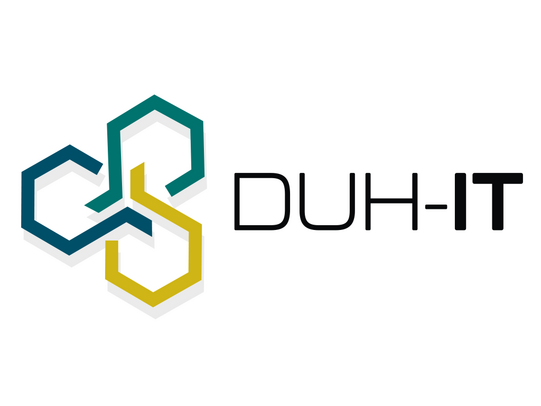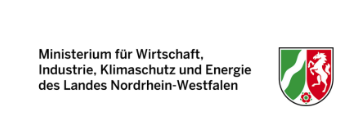DUH-IT

Problem definition
Dortmund, Unna, Hamm. From an economic point of view, the three regions in the center of NRW have a great deal in common: Identical economic sectors can be identified which, in addition to mining and the processing industry, primarily include logistics economic activities such as trade, transport and warehousing (hereinafter referred to as logistics). While logistics is one of the region's successful sectors, previous core sectors are facing major challenges. Particularly against the backdrop of energy policy change and the phasing out of coal-fired power generation, the economy in Unna and Hamm in particular needs to be transformed in order to secure its future viability and competitiveness. According to IT.NRW, this primarily affects SMEs due to the heterogeneous composition of industry in the region.
The development of a hydrogen region based on the regional hydrogen strategy requires that companies that previously had little or no economic exchange with each other are quickly enabled to cooperate and innovate together. In this context, there are major parallels with logistics: Industry innovations such as blockchain technology create added value here (e.g. track & trace, proof of origin and supply chain transparency) with excellent potential for adaptation and dissemination, particularly for SMEs from the region. Previous weaknesses such as the low level of innovation can be further strengthened and integrated into the strategic development of the regional hydrogen economy by systematically enabling the use of blockchain technology, especially for medium-sized logistics services. There is enormous potential here, particularly in cooperation with the Dortmund logistics ecosystem. Due to the geographical proximity and self-similarity of the economic sectors, there is a need to participate in Dortmund's "research-centered innovation space for logistics". In line with the aforementioned hydrogen strategy, the objectives of the state government and the structural strengths of the Dortmund-Unna-Hamm (DUH) region, the establishment of a model region for blockchain in logistics is a good idea. Blockchain technology can play a key role in the creation of a joint innovation ecosystem in the DUH region, which strengthens the regional economic sectors and decisively supports the hydrogen strategy.
Objective
The project DUH-IT | Blockchain in Logistics: Innovation Transfer for the Model Region "Dortmund-Unna-Hamm" offers companies and public institutions, especially from the Dortmund-Unns-Hamm region, fast and free access to blockchain and logistics experts. The project focuses on two central goals - enabling the region to use blockchain technology and implementing a proof of origin for hydrogen using blockchain.
Approach
DUH-IT provides interested companies with a wide range of services for this purpose:
- Awareness-raising and demonstration events
- Self-study units and specialist lectures
- Coding workshops
- Support in developing ideas and implementing your own blockchain projects
- Opportunities to help shape the future topic of "proof of origin for hydrogen"
News from the project
Consortium
Contact persons at the LFO
Funding information
Project duration:
01.03.2024 - 28.02.2027
Funding reference number:
EFRE-20200046
Project logo:



The project is funded as part of the "Regio.NRW - Transformation" program by the Ministry of Economic Affairs, Industry, Climate Protection and Energy of the State of North Rhine-Westphalia (MWIKE) under the ERDF-20200046 funding code and supervised by the Arnsberg district government.
Want to find out more about the project?
Have you become curious? Would you like to find out more about the project? Then visit the official project homepage!








